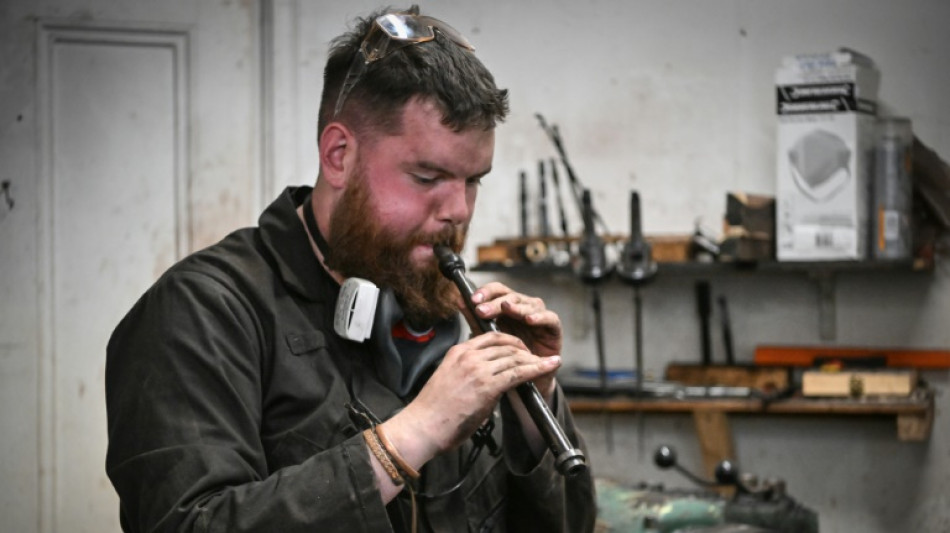
-
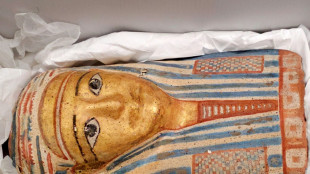 Australian museum recovers Egyptian artefacts after break-in
Australian museum recovers Egyptian artefacts after break-in
-
India forced to defend US trade deal as doubts mount

-
 Bitter pill: Taliban govt shakes up Afghan medicine market
Bitter pill: Taliban govt shakes up Afghan medicine market
-
Crunch time for Real Madrid's Mbappe-Vinicius partnership

-
 Rio Carnival parades kick off with divisive ode to Lula in election year
Rio Carnival parades kick off with divisive ode to Lula in election year
-
Nepal 'addicted' to the trade in its own people
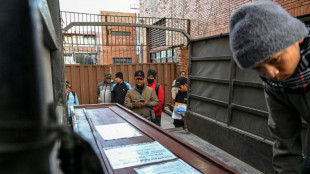
-
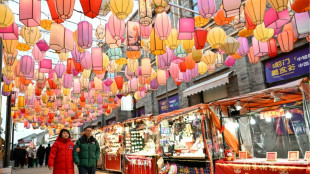 Asian markets sluggish as Lunar New Year holiday looms
Asian markets sluggish as Lunar New Year holiday looms
-
'Pure extortion': foreign workers face violence and exploitation in Croatia

-
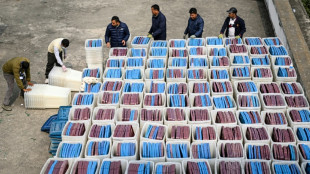 Nepal launches campaigns for first post-uprising polls
Nepal launches campaigns for first post-uprising polls
-
What to know as South Korea ex-president Yoon faces insurrection verdict

-
 'Train Dreams,' 'The Secret Agent' nab Spirit wins to boost Oscars campaigns
'Train Dreams,' 'The Secret Agent' nab Spirit wins to boost Oscars campaigns
-
Rubio visits Trump's 'friend' Orban ahead of Hungary polls

-
 Kim unveils housing block for North Korean troops killed aiding Russia: KCNA
Kim unveils housing block for North Korean troops killed aiding Russia: KCNA
-
Accused Bondi killer Naveed Akram appears in court by video link
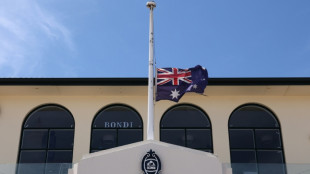
-
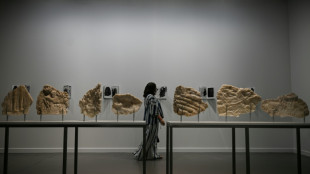 Art and the deal: market slump pushes galleries to the Gulf
Art and the deal: market slump pushes galleries to the Gulf
-
Job threats, rogue bots: five hot issues in AI

-
 India hosts AI summit as safety concerns grow
India hosts AI summit as safety concerns grow
-
'Make America Healthy' movement takes on Big Ag, in break with Republicans
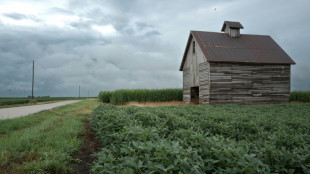
-
 Tech is thriving in New York. So are the rents
Tech is thriving in New York. So are the rents
-
Young USA Stars beat Stripes in NBA All-Star tourney final

-
 New anti-government chants in Tehran after giant rallies abroad: reports
New anti-government chants in Tehran after giant rallies abroad: reports
-
'The Secret Agent' nabs Spirit Awards win in boost to Oscars campaign

-
 Brignone wins second Milan-Cortina gold as Klaebo claims record ninth Olympic crown
Brignone wins second Milan-Cortina gold as Klaebo claims record ninth Olympic crown
-
Morikawa wins at Pebble Beach despite Scheffler heroics

-
 Germany's Hase and Volodin tango to Olympic pairs figure skating lead
Germany's Hase and Volodin tango to Olympic pairs figure skating lead
-
Rayo thrash Atletico who 'deserved to lose' as Betis cut gap

-
 Napoli salvage point after Malen twice puts Roma ahead
Napoli salvage point after Malen twice puts Roma ahead
-
Lyon down Nice to boost Ligue 1 title bid with 13th straight win

-
 LeBron still unclear on NBA future: 'I have no idea'
LeBron still unclear on NBA future: 'I have no idea'
-
Shelton battles back from brink to beat Fritz, take Dallas crown

-
 Great Britain celebrate best-ever Winter Olympics
Great Britain celebrate best-ever Winter Olympics
-
Brignone wins second Milan-Cortina gold as Klaebo claims record ninth

-
 Arteta concerned over Arsenal's mounting injury list
Arteta concerned over Arsenal's mounting injury list
-
In fuel-starved Cuba, the e-tricycle is king

-
 Shaidorov still spinning after outshining Malinin for Olympic gold
Shaidorov still spinning after outshining Malinin for Olympic gold
-
Late Gruda goal grabs Leipzig draw versus Wolfsburg

-
 'Ultra-left' blamed for youth's killing that shocked France
'Ultra-left' blamed for youth's killing that shocked France
-
Canada wrap up perfect Olympic ice hockey preliminary campaign

-
 Historical queer film 'Rose' shown at Berlin with call to action
Historical queer film 'Rose' shown at Berlin with call to action
-
Wales' Tandy tips hat to France after Six Nations hammering

-
 Quadruple chasing Arsenal rout Wigan to reach FA Cup fifth round
Quadruple chasing Arsenal rout Wigan to reach FA Cup fifth round
-
2026 S-Class starry facelift

-
 What they said as India beat Pakistan at T20 World Cup - reaction
What they said as India beat Pakistan at T20 World Cup - reaction
-
Away-day blues: England count cost of Scotland Six Nations defeat

-
 'Wuthering Heights' debuts atop North America box office
'Wuthering Heights' debuts atop North America box office
-
Rayo thrash Atletico who 'deserved to lose'

-
 Kok beats Leerdam in Olympic rematch of Dutch speed skaters
Kok beats Leerdam in Olympic rematch of Dutch speed skaters
-
India rout bitter rivals Pakistan by 61 runs at T20 World Cup

-
 France run rampant to thrash sorry Wales 54-12 in Six Nations
France run rampant to thrash sorry Wales 54-12 in Six Nations
-
Rio to kick off Carnival parade with ode to Lula in election year


'One of the last': handmade bagpipes a dying art in Scotland
The Highland bagpipe is an integral part of Scottish culture and history, famous for its distinctive, powerful sound that even accompanied troops as they landed in northern France on D-Day.
But the wind instrument is slowly growing silent as demand dwindles and machine-made bagpipes replace traditionally crafted ones, consigning their use to largely ceremonial occasions.
Just off Edinburgh's historic Royal Mile, which sweeps down from the city's imposing castle to the Palace of Holyroodhouse, is a faded storefront sign for artisan bagpipe maker Kilberry Bagpipes.
Inside, Ruari Black is one of only a few remaining craftsmen in Edinburgh who knows how to make the instrument by hand.
"At Kilberry, we're one of the last artisan bagpipe makers -- certainly in Edinburgh, the capital of Scotland -- but probably all around the world," Black told AFP as he shaped a pipe with a lathe.
"It's got a big sound, it'll fill a room," said Black, describing the nine stages it takes to make the intricate instrument.
After boring and shaping the pipes, they are fitted with mounts and ferrules before adding the finishing touches and setting up the components.
The whole process takes around a week, with the craftsmen working on multiple bagpipes at the same time.
The finished product has "our distinct sound", according to Black. "Every set, we're striving to have that consistency across, to make sure they're sounding the same."
Each handmade set also has "its own character, in terms of looks, in terms of feel", making it attractive to customers from around the world, he added.
The current wait time for an artisan Highland bagpipe is two years on Kilberry's website.
- Best-known form -
"Customers are coming to us for a set of handmade pipes, they're generally coming for the handmade aspect," Black explained.
"They're wanting the sound we strive to produce -- the thing we want to be known for."
Clients include experienced pipers as well as newcomers looking to buy their "first practice chanter" -- the part of the bagpipe with finger holes, where the melody is played.
While bagpipes have been recorded in Scottish history for some 600 years, the origins remain unclear.
Different variations found around the world include the Irish bagpipe, the Northumbrian smallpipes and the Turkish tulum.
In Brittany, northwest France, a band called a bagad is composed of Breton bagpipes, or biniou, and drums.
However, the Highland bagpipe remains the best-known form, and has had significant influence in the military music of Britain and Commonwealth countries.
Every year, the Royal Edinburgh Military Tattoo -- a series of military musical performances with massed pipe bands -- takes place at the top of the Royal Mile.
The last song played at Queen Elizabeth II's funeral in 2022 was a rendition of the lament "Sleep, Dearie, Sleep", played by her personal piper.
- 'Means a lot' -
Despite its enduring cultural significance, the traditionally handmade Highland bagpipe is vanishing. Unlike Kilberry, most other producers now use machinery.
However, Black said it is easy to differentiate the instruments, with machine-made ones missing the "hand-turned" shapes and decorative designs that his bagpipes have.
Despite having fewer workers and taking longer to make each bagpipe, they "try and keep the cost down for customers to still have a handmade instrument", said Black.
"So it's kind of up to the customer to choose us over mass-produced."
Some mass-manufactured bagpipes can also be told apart by their use of imitation ivory for the mounts, according to Black.
The artisans are trying to be more sustainable without compromising on quality.
For Black, there is no alternative to making bagpipes by hand.
"Keeping it handmade means a lot to me -- it's the way it's always been done. It just feels right," he added.
"For something that's completely dying out, it's not nice to be one of the last... but it's nice to be carrying that on."
S.Gregor--AMWN